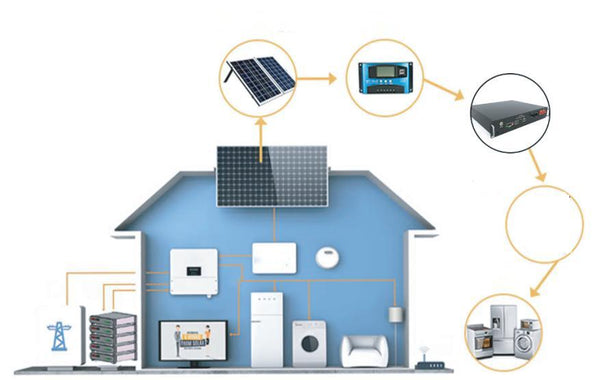Le LiFePO4 est-il sûr dans la maison ?
La batterie LiFePO4, également appelée lithium fer phosphate, est un type de batterie lithium-ion qui a gagné en popularité ces dernières années grâce à sa densité énergétique élevée, sa longue durée de vie et ses caractéristiques de sécurité. Alors que de plus en plus de personnes envisagent d'utiliser des batteries LiFePO4 pour diverses applications domestiques, comme le stockage d'énergie solaire ou la recharge de véhicules électriques, la question de leur sécurité en intérieur se pose. Dans cet article, nous aborderons les aspects de sécurité des batteries LiFePO4 dans un environnement domestique.
Stabilité chimique et non-toxicité
L'une des principales caractéristiques de sécurité des batteries LiFePO4 réside dans leur stabilité chimique. Contrairement à d'autres batteries lithium-ion, le LiFePO4 n'est pas sujet à l'emballement thermique, une situation où la batterie surchauffe et peut potentiellement prendre feu. Cette stabilité est due à la robuste structure cristalline du LiFePO4, qui limite la surchauffe de la batterie, même dans des conditions extrêmes.
De plus, le LiFePO4 est considéré comme non toxique, ce qui signifie qu'il ne présente pas de risque significatif pour la santé s'il est manipulé correctement. C'est un point important à prendre en compte pour les foyers où des enfants et des animaux domestiques peuvent être présents.
Stockage et manipulation appropriés
Cependant, bien que les batteries LiFePO4 soient généralement sûres, il est important de suivre les consignes de stockage et de manipulation appropriées afin de minimiser les risques potentiels. Les batteries doivent être stockées dans un endroit frais et sec, à l'abri de la lumière directe du soleil et des températures extrêmes. Elles doivent également être tenues hors de portée des enfants et des animaux domestiques afin d'éviter tout dommage accidentel ou toute ingestion.
Lors de la charge ou de la décharge des batteries LiFePO4, il est essentiel d'utiliser l'équipement approprié et de suivre les instructions du fabricant. Une surcharge ou une décharge excessive peut endommager la batterie et présenter un risque pour la sécurité. Il est également conseillé d'inspecter régulièrement les batteries pour détecter tout signe de dommage ou de fuite.

Considérations relatives à la sécurité incendie
Bien que les batteries LiFePO4 soient moins sujettes à l'emballement thermique que les autres batteries lithium-ion, elles peuvent néanmoins prendre feu en cas de chaleur extrême ou de dommages physiques. Il est donc important d'avoir un extincteur à portée de main et de bien connaître son fonctionnement en cas d'urgence. De plus, il est recommandé de tenir les batteries à l'écart de matières inflammables.
En conclusion, les batteries LiFePO4 sont généralement sûres à utiliser à la maison si elles sont manipulées et stockées correctement. Leur stabilité chimique et leur non-toxicité en font un choix plus sûr que d'autres batteries lithium-ion. Cependant, il est essentiel de suivre les instructions du fabricant, d'utiliser un équipement approprié et d'inspecter régulièrement les batteries pour détecter tout signe de dommage ou de fuite. En prenant ces mesures de sécurité, vous pourrez profiter des avantages des batteries LiFePO4 à la maison sans vous soucier des risques potentiels.
























